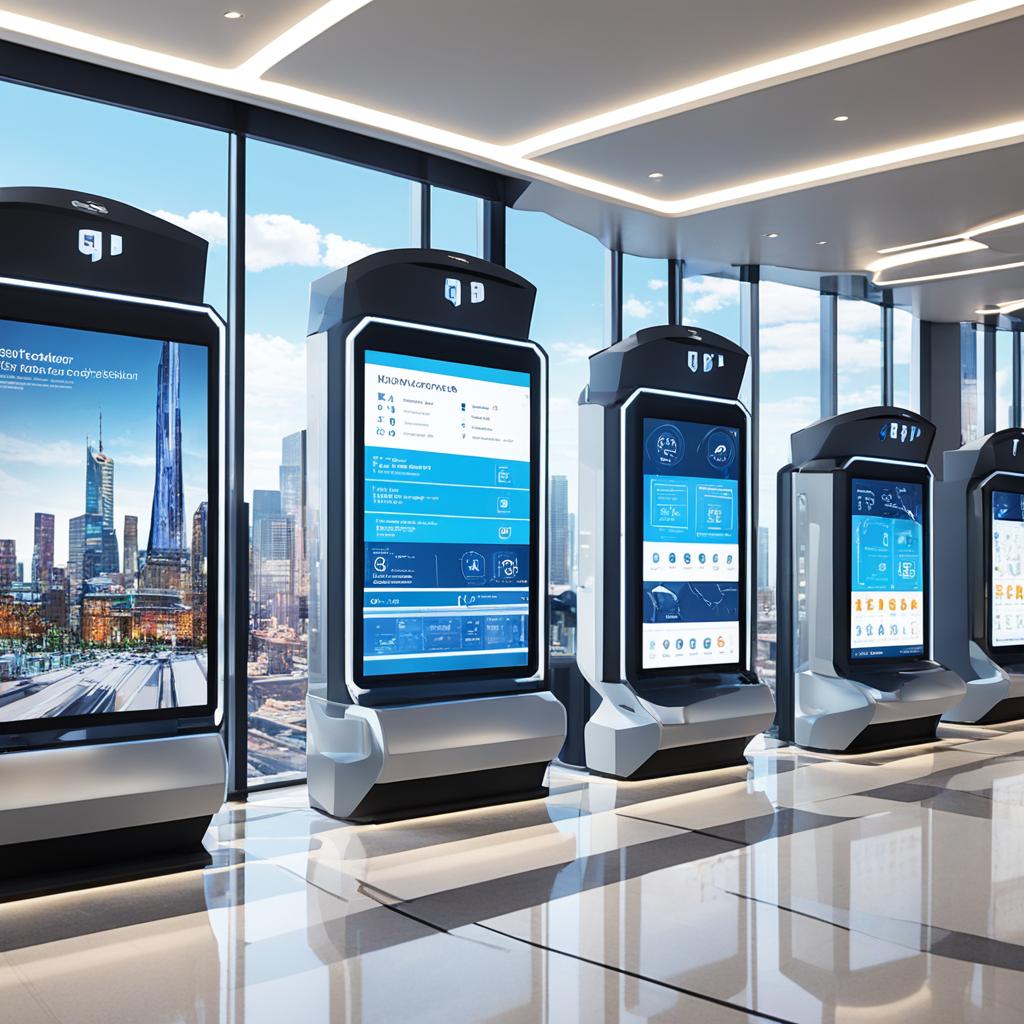When you think of hotels, you might associate them with the real estate industry. After all, hotels are physical structures comprising buildings and land. However, there is a compelling argument that challenges this conventional belief. Are hotels merely real estate assets, or do they operate more like technology-enabled service businesses?
In recent years, the hospitality industry has undergone a remarkable digital transformation. The integration of online, mobile, cloud, IoT, AI, robotics, and blockchain technologies has revolutionized hotel operations, guest services, revenue management, and marketing. Hotels are no longer solely defined by their bricks and mortar; they must embrace and prioritize technology advancements to enhance the guest experience and improve operational efficiencies.
But here’s the catch. Many hotels have been slow to adopt and fully leverage these technologies, creating a discrepancy between guest expectations and the technology provided by hotels. So, where does that leave hotels in relation to the real estate industry? Are they just physical assets, or are they increasingly technology-driven service providers?
In this article, we explore the evolving relationship between hotels and the real estate industry. We will delve into the impact of technology on the hospitality sector, the role of hotels as non-core real estate investments, and how hotels can capitalize on the opportunities presented by technology integration. We will also discuss the importance of guest satisfaction, operational efficiencies, and revenue generation in the context of both real estate and hospitality.
Join us on this journey as we unravel the complexities of the modern hotel industry and discover why hotels are far more than just real estate assets.
Hotels as Non-Core Real Estate Investments

When it comes to real estate investments, hotels are often classified as non-core assets. Equity investors and lenders categorize hotels as either value-added or opportunistic real estate opportunities, depending on their perspective. Unlike traditional real estate properties, non-core assets like hotels require additional value creation through active management or repositioning strategies.
Hotel ownership and operations are more complex than typical real estate businesses. In addition to managing the physical real estate component, hotel owners must also prioritize guest experiences, technology implementations, and operational efficiencies. This unique focus on service and technology is crucial to the success of hotels as non-core real estate investments.
By investing in hotels, equity investors and lenders have the opportunity to generate higher returns. However, this requires a deep understanding of the industry and the ability to navigate the complexities of hotel management. Successful hotel investments rely on effective value creation through strategic management of guest experiences, technology integration, and operational excellence.
Value-Added Real Estate Investments
Value-added hotel investments involve acquiring properties that have untapped potential for improvement. This can include renovating outdated facilities, implementing innovative technology solutions, or enhancing guest services. By creating additional value through these initiatives, equity investors and lenders can increase the hotel’s profitability and overall asset value.
Opportunistic Real Estate Investments
Opportunistic hotel investments involve acquiring underperforming or distressed properties with the potential for significant growth and value appreciation. These investments often require substantial repositioning efforts, such as rebranding, repositioning in the market, or implementing new management strategies. By capitalizing on these opportunities, equity investors and lenders can maximize their returns.
Ultimately, hotels as non-core real estate investments offer unique opportunities for value creation and financial growth. However, they require specialized expertise and a deep understanding of the hospitality industry to ensure success.
The Impact of Technology on the Hospitality Industry

The digital transformation has revolutionized the hospitality industry, turning it into a 100% technology-enabled service industry. Hotels now rely on a wide range of digital tools and applications to enhance guest experiences and improve operational efficiencies.
One of the notable advancements in technology is mobile check-in, which allows guests to bypass traditional check-in queues and have a seamless arrival experience. With just a few taps on their smartphones, guests can check-in, choose their room, and even unlock their doors using mobile keys. This not only saves time for guests but also improves operational efficiency for hotels.
Moreover, IoT devices have become increasingly prevalent in hotels. From smart thermostats and lighting systems to voice-activated assistants and personalized in-room experiences, IoT devices enhance guest comfort and convenience. These devices can be integrated with hotel systems, such as property management systems (PMS) and guest-facing apps, to provide a more tailored and efficient service.
Gone are the days of paper-based processes and manual operations. With technology, hotels can streamline their operations and offer a more personalized experience to guests. Cloud-based PMS and revenue management systems (RMS) enable real-time data analysis and decision-making, helping hotels optimize their pricing strategies and maximize revenue. Customer relationship management (CRM) platforms allow hotels to capture guest preferences and deliver personalized recommendations, leading to increased guest satisfaction and loyalty.
However, despite the immense potential of technology in hospitality, many hotels have been slow to prioritize technology advancements. Some hoteliers focus more on physical improvements, such as renovations and amenities, rather than meeting the evolving expectations of technology-savvy guests. Today’s guests are accustomed to high-quality technology in their daily lives and expect the same level of technological advancements when staying at hotels.
To thrive in the industry, hoteliers must embrace and incorporate digital tech solutions. By leveraging technology, hotels can enhance guest satisfaction and loyalty, improve operational efficiencies, and deliver exceptional customer service. It’s essential for hotels to understand the importance of integrating technology into their operations and stay ahead of the curve in meeting the expectations of today’s technology-savvy guests.
The Relationship Between Real Estate and Hospitality
While hotels are classified as part of the real estate industry, the relationship between real estate and hospitality has shifted. The focus has moved away from traditional real estate thinking and towards embracing technology integration to improve guest satisfaction, operational efficiencies, and revenue generation. The hospitality industry operates within real estate assets, similar to retail stores, colleges, hospitals, and manufacturing facilities. Just as owning a retail store does not make one a real estate company, owning a hotel does not solely define a business as a real estate entity. Today’s hoteliers need to understand that their success lies not just in the physical assets they own but in their ability to effectively leverage technology and provide exceptional guest experiences.
Technology Integration in the Hospitality Industry
In today’s digital era, technology integration plays a pivotal role in the success of the hospitality industry. Hotels must adapt and capitalize on technology advancements to enhance guest satisfaction, improve operational efficiencies, and drive revenue generation. There are several key areas where technology integration has significantly impacted the hospitality industry:
- Mobile Check-In: Streamlining the check-in process by allowing guests to check-in using their smartphones, minimizing wait times and enhancing convenience.
- IoT Devices: Utilizing Internet-of-Things (IoT) devices to provide personalized services, such as smart thermostats, voice-controlled assistants, and automated room controls.
- Cloud-Based Systems: Implementing cloud-based property management systems (PMS), revenue management systems (RMS), and customer relationship management (CRM) platforms for efficient operations and seamless guest interactions.
By embracing technology integration, hotels can create a seamless guest experience, from booking to departure, while also optimizing their operational processes.
| Benefits of Technology Integration in Hospitality |
|---|
| Enhanced Guest Satisfaction |
| Operational Efficiencies |
| Increased Revenue Generation |
The Role of Hospitality in Real Estate Investment

Investing in hotels can be a lucrative opportunity within the real estate sector. Hotels offer a unique proposition for investors seeking diversification and the potential for higher returns. By venturing into the hospitality industry, you can tap into the dynamic market of hotels and capitalize on their growth potential.
When it comes to real estate investment, hotels provide a variety of options based on market conditions and demographics. Luxury hotels cater to discerning travelers who seek premium experiences, while upper mid-scale hotels cater to the needs of business and leisure travelers. Economy hotels, on the other hand, offer affordability and accessibility for budget-conscious guests. Each segment presents its own set of investment opportunities, allowing you to tailor your strategy based on your risk profile and target market.
Moreover, the senior housing sub-sector, which encompasses assisted living and independent housing for seniors, offers a distinctive investment opportunity driven by demographic trends rather than economic fluctuations. As the aging population continues to grow, the demand for senior housing is expected to rise, making it an attractive option for investors looking for stable, long-term returns.
However, successful investment in the hotel industry goes beyond property ownership. It requires adopting a customer-centric approach that focuses on meeting evolving guest expectations and delivering exceptional experiences. In today’s competitive landscape, customers demand more than just a place to stay – they seek personalized services, innovative amenities, and seamless experiences from check-in to check-out.
To navigate the complex world of hotel investment, it is essential to have a deep understanding of location dynamics, management expertise, and the ability to adapt to changing market conditions. Partnering with seasoned professionals who possess a wealth of experience in hotel management and operations can significantly enhance the chances of success. Their knowledge and insights can help identify lucrative investment opportunities, implement effective strategies, and maximize returns.
Safety, Security, and Valuation Considerations in the Hotel Industry
The hotel industry faces several challenges when it comes to safety, security, and valuation. One pressing issue is staffing shortages, which can have a direct impact on operational capabilities and guest experiences. Despite efforts by hotels to increase wages, offer flexible hours, and expand benefits, they still struggle to fill open positions, leading to staffing gaps that can affect service quality and customer satisfaction.
Another critical concern for hotels is security and compliance. To ensure the well-being of both staff and guests, hotels have implemented various technologies and measures. Panic buttons, for example, are now being incorporated to provide employees with a quick and discreet way to call for help in case of emergencies. Additionally, chip-based payment systems are widely adopted to minimize the risk of fraud and protect guests’ financial information.
Valuation appraisal is a key aspect of the hotel industry, considering factors such as location, market demand, and financial performance. Appraisals typically utilize approaches such as cost, income capitalization, and sales comparison to determine the value of hotel properties. This evaluation process ensures that hotels are priced correctly and helps investors make informed decisions when buying or selling assets within the industry.
In today’s digital age, data security is of paramount importance to maintain customer trust. Successful hotels prioritize protecting guest information from potential threats. Robust data security measures, including encryption and secure storage systems, are implemented to safeguard sensitive data and prevent unauthorized access. By ensuring proper security protocols, hotels can not only protect guest information but also maintain customer confidence and enhance overall customer experience.


